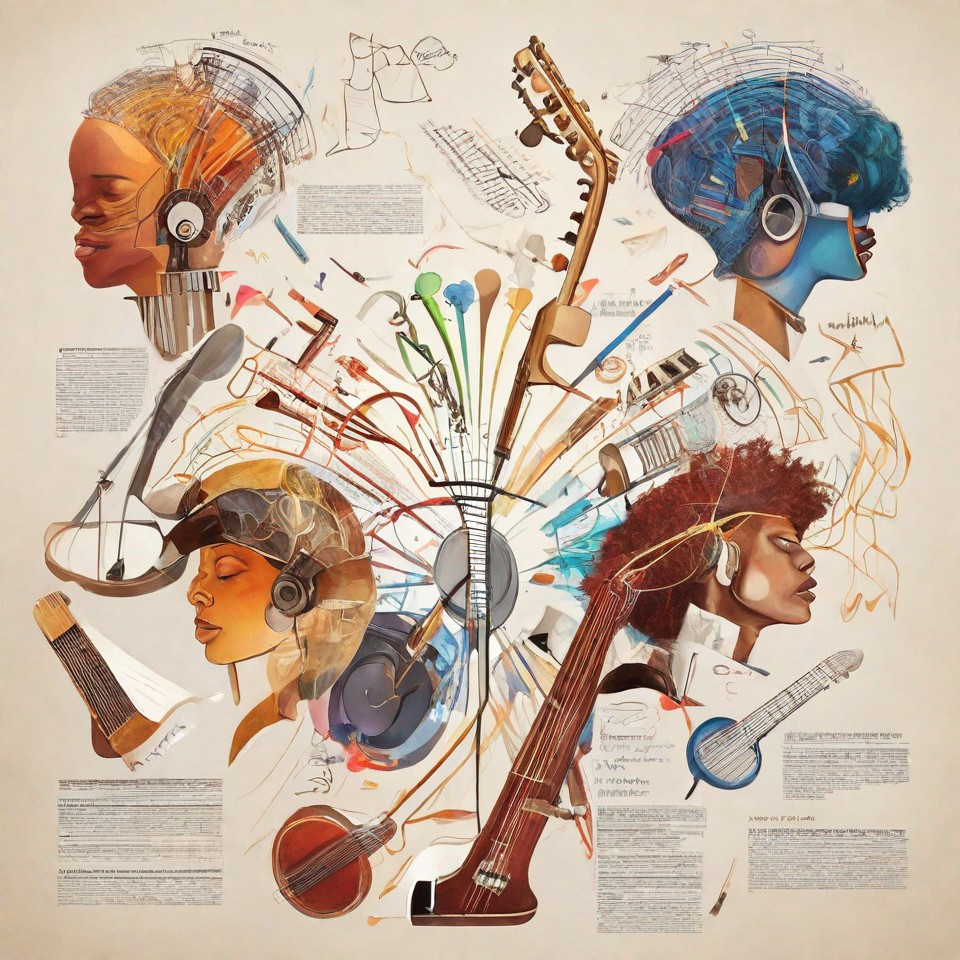The Yoruba Rythmic Deities: A Brief Analysis of Chucho Valdés’s Use Of Yoruba Rhythms related to My Own Performance Practice
DOI :
https://doi.org/10.62410/gg2zcd09Mots-clés :
Chucho, Jazz, Composition, Performance, PianoRésumé
Yoruba rhythms have been an endless source of inspiration to musicians around the world since their African birth.[1] As the Yoruba religion has played a major role in shaping Cuban culture since the massive arrival of West African slaves on the island in the nineteenth century, a multitude of Cuban instrumentalists and composers have shown undeniable Yoruba influences.[2] Chucho Valdés is one of the most famous figures to illustrate this phenomenon.[3] For more than five decades, he has performed, improvised, arranged, composed, mixed, mastered and edited music that not only uses Yoruba rhythms but also strongly celebrates the general Afro-Cuban legacy.[4] Valdés is a pioneer and model to most Cuban musicians, including myself, because he has developed a unique and personal style through the hybridization of two powerful and distinct musical genres: jazz and Afro-Cuban music.[5] I have been greatly influenced by this pianist since I started learning music, and I believe I have been following his path in my recent quest for hybrid creative music. In this essay, I will discuss the personality of the Yoruba deities in relationship with their rhythms. Then, I will do a brief analysis of Chucho Valdés’ performance practice and use of Yoruba rhythms. Finally, I will tend to in related Chucho’s approach to my own approach. I will attempt to define and analyze both ways of approaching piano performance, improvisation, and composition and will illustrate the main differences. I will then explain why I have chosen this musical direction and sketch out my personal path within the broader perspective of contemporary jazz performance practice.
[1] Acosta, Leonardo. Cubano Be, Cubano Bop: One Hundred Years of Jazz in Cuba. Washington: Smithsonian Books, 2003, p. 59.
[2] Ortiz, Fernando. Los Negros Brujos. Miami, Florida: Ediciones Universales,1973. p-12.
[3] Acosta, Smithsonian Books: 2003, p. 212.
[4] Chucho Valdés’s Website.“Biography.” Accessed on November 9, 2015. http://www.valdeschucho.com/index.html#about.
[5] Acosta, Smithsonian Books: 2003, p. 212.
Téléchargements
Références
Acosta, Leonardo. Cubano Be, Cubano Bop: One Hundred Years of Jazz in Cuba. Washington: Smithsonian Books, 2003, p. 59.
Acosta, Leonardo. “Chucho Valdés: Opiniones.” EcuRed. Accessed on Saturday, October 13, 2023. http://www.ecured.cu/index.php/ChuchoValdés.
Acosta, Leonardo. Descarga número dos: el jazz en Cuba 1950-2000. Habana: Ediciones Union, 2002, p. 1-100.
Berendt, Joachim-Ernst. The Jazz Book: From Ragtime to the 21st Century. Chicago: Lawrence Hill Books, 2009, p. 716.
Castellanos, Jorge and Isabel Castellanos. Cultura Afrocubana 3: Las Religiones y Las Lenguas. Florida: Ediciones Universal, 1992, p. 18.
Chucho Valdés’s Website. “Biography.” Accessed on October 9, 2023. http://www.valdeschucho.com/index.html#about.
Cubalatina website. “700 Indiens comanches déportés à Cuba.” Accessed on October 15, 2023.
http://www.cubalatina.com/portraits/chucho-valdes.php3#.ViE3Utb-9SV.
Delgado, Kevin Miguel. “Iyesa: Afro-Cuban Music and Culture in Contemporary Cuba.” PhD dissertation, University of California, 2001. ProQuest (UMI 3026270), p. 324.
EcuRed. Accessed on November 9, 2015. http://www.ecured.cu/Irakere.
Fuente, U. “Chucho Valdés: Cuando toco el piano se sienten los tambores cubanos.” In La Razón journal, published on July 10, 2015. Accessed on October 15, 2023.
Johnson, Samuel and Johnson Obadiah. The History of the Yorubas: From the Earliest Times to the Beginning of the British Protectorate. London: Routledge & K. Paul, 1966, p. 6.
León, Argeliers. Del Canto y el Tiempo. La Habana : Editorial Pueblo y Educación, 1981, p. 38.
López, Irian and Dagoberto González. Abbilona Tambor Yoruba: Obatalá. Abbilona Large Ensemble. Irian López. Bis Music BIS 326, 1999, 1 compact disc.
Ortiz, Fernando. Los Negros Brujos. Miami, Florida: Ediciones Universales,1973, p.12.
Panken, Ted’s Blog. “Chucho Valdés Is 71 Today: A 2004 Downbeat Feature.” October 9, 2023. Accessed on November 9, 2015. https://tedpanken.wordpress.com/2011/10/09/chucho-valdes-is-71-today-a-2002-downbeat-feature/.
Portillo Jr., Ernesto. Cuban jazz pianist Chucho Valdés recreates Irakere. Published on October 15, 2023. Accessed on October 15, 2015. http://tucson.com/entertainment/music/cuban-jazz-pianist-chucho-valdes-recreates-irakere/article_f572ccc9-ffe0-5850-bee9- de154b5ef618.html.
Schweitzer, Kenneth. “The Artistry of Afro-Cuban Batá Drumming” Aesthetics, Transmission, Bonding, and Creativity.” University of Mississippi, 2013, p. 27.
Steve Coleman’s M-base website. “Essays.” Accessed on November 10, 2023. http://m-base.com/essays/.
Valdés, Chucho. Irakere : Juana 1600. Chucho Valdés Large Ensemble. Chucho Valdés. Areito, LD-3660, 1976. 1 LP Album.
Zaldivar, Rafael. Drawing. Rafael Zaldivar Quintet with Zaldivar (p), Greg Osby (as), Lisanne Tremblay (vln), Rémi-Jean LeBlanc (b), Philipp Melanson (d), Eugenio Osorio (perc). Rafael Zaldivar and Alain Bédard. FND 119, 2012, 1 compact disc.
Zaldivar, Rafael. Farahon. Rafael Zaldivar Quintet with Zaldivar (p), Janis Steprans (s), Gabriel Hamel (g), Adrian Vedady (b), and Louis-Vincent Hamel (d). Rafael Zaldivar, 2015, demo recording.
Publié
Numéro
Rubrique
Catégories
Licence
© Rafael Zaldivar 2024

Cette œuvre est sous licence Creative Commons Attribution 4.0 International.
